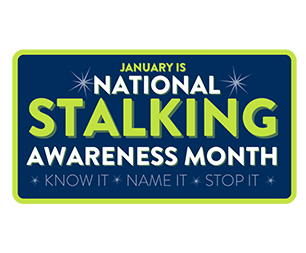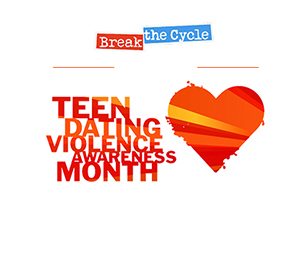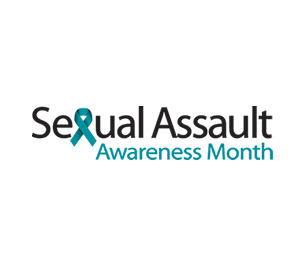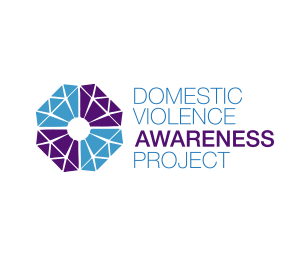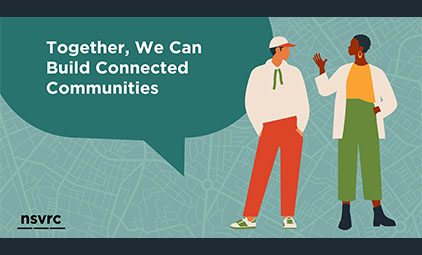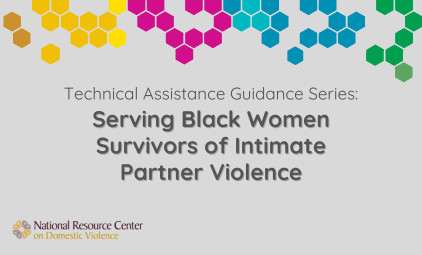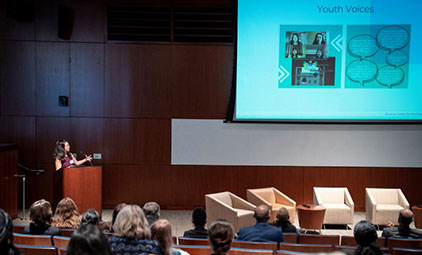By Jacqueline Miller, NRCDV’s Director of Racial Equity & Social Change
Focused on six key words, the memoir, Abundance & a Necessary Reflection: Absolute. Brilliance. Alchemizing. Necessary. Consistent. Embody., came to me as I reflected on the BIPOC Leadership Summit 2024, led by Timike Jones, Prevention Coordinator with the Indiana Coalition Against Domestic Violence.
Results from a poll question asked during the summit revealed that 100% of poll participants see the organizations they work for as “obsessed with the future.” The way I interpret being obsessed with the future is that the gift of the present is less important than the future. This impacts how we appreciate and engage with one another, our communities, and work, including resources.
Here is an acrostic poem that I created from my memoir:
Absolute hope. “Knowing” is full and rich of the belief that there is and will always be “more” vs lack and limitations.
Brilliance is not ONLY recognized but appreciated and embraced.
Ubuntu. Instructs us to acknowledge our communal wholeness as partners in abundance.
Nature is an ally. In it we find abundant diversity, energy, and joy. 
Daily diving into reminders about the resilience and tenderness of precious minerals and under spring of the earth that abundantly houses us all.
Alchemizing toxicity keeps wellness and communal care as current realities.
Necessity of tending to our roots by actively engaging in the work to uproot the historical ways that Black, Indigenous, and other people of color (BIPOC) and communities have been denied access to the abundant resources necessary to thrive.
Consistent tending to the earth in both actions and deeds.
Embody and adopt an abundance stance mindset to rest vs the scarcity mindset to grind and prove. Rest in the fact that “you are enough.”
Have a cup of ABUNDANCE. It is within you and it's calling you to examine:
- What are the ways absolute hope is showing up within you?
- What are the ways you honor the brilliance that surrounds you?
- How do you see yourself as an Ubuntu partner with an abundance mindset?
- List some of the creations of nature that continue to prove themselves to you as allies.
- What are some of your daily practices of diving into and setting reminders for yourself about how generously the earth houses you?
- In what ways do you feed your soul to prepare to alchemize all areas of toxicity? This should be part of sacred processes to assure that wellness and communal care are inevitable realities, both current and future. Do not forget to also alchemize the past!
- What are some of the action steps that you are taking to lean into the necessity of uprooting both the historical and current ways that marginalized communities are denied access to abundant resources?
- In what ways can you advocate for consistent tending to mother earth and the plentiful space that we all know exists?
Examples to draw from: How did the scarcity vs. abundance mindsets play out in the wake of COVID-19?
Milo Primeaux defines the scarcity mindset as believing that there is not enough of anything to go around, that we are at risk of losing everything, and we must put our own self-interests first. An abundance mindset is “the belief that there is enough of everything for everyone” which fosters collaboration, sharing, and trust in our collective work (PSU Center for Women’s Leadership). In the wake of COVID-19, “narratives of abundance have become even more relevant and urgent as we as a nation work to allocate resources: healthcare for those who need it, living wages for essential workers, the protection of housing for all, and much more” (Lightbox Collaborative).
The twin pandemics of racial injustice and COVID-19 brought about feelings of hopelessness, helplessness, invisibility, and inadequacy. At this intersection, those with the power to uphold white supremacy culture perpetuated the scarcity mindset, leaving behind those from marginalized communities.
Throughout the COVID-19 pandemic, individuals with racial and socio-economic privilege engaged in resource hoarding driven by the fear that their access to material goods was threatened. Remember the toilet paper debacle? That was a prime example of how the scarcity mindset influenced mainstream society’s experience of COVID-19. Meanwhile, Black and Brown communities continued to experience the disparate systematic denial of access to resources. Due to stay-at-home orders, many individuals lost their jobs, childcare, and support systems. Access to resources such as healthcare, housing, and domestic violence services became even more limited.
Rates of domestic violence were reported to be 8.1% higher during COVID-19. Survivors were confined to their homes, which they often share with their abuser. This made isolating survivors even easier, as well as giving unique control tactics to the abuser. The mandate to “stay-in-place” limited access to domestic violence resources significantly. While some domestic violence agencies offered services virtually, abusers could and would often control internet usage and monitor survivors’ help-seeking attempts. Furthermore, the economic burden of the twin pandemics has disproportionally impacted survivors of color, with research demonstrating that “COVID-19-related financial insecurity is greatest among Black and Brown women survivors” (me too. & FreeFrom, 2020).
A reflection opportunity: How does the scarcity mindset manifest within our organizations and hinder our racial equity efforts?
One pervasive way in which the scarcity mindset plagues our work is in the form of power hoarding. Power hoarding is one of the many facets of white supremacy culture that show up in our organizations. These manifestations of white supremacy are insidious, impacting every part of our work. Therefore, it can be very difficult to name or identify these practices when we are doing our work and making decisions based on a scarcity mentality. White supremacy culture makes us believe that power is limited, with only so much to go around. As a result, there is little value placed on sharing power. In this context, leaders feel threatened when anyone suggests changes to how things could or should be done in the organization. Those with power often also control what, when and with whom information is shared.
The Centre for Community Organizations (COCo) recommends the following antidotes against power hoarding and towards cultivating our ability to share power:
- “Embed shared power in the organization’s values statement, its structures and policies, and its day-to-day operations;
- Instill a culture of good leadership understood as supporting the development of others’ leadership skills. Relatedly, such a culture necessarily abandons the idea of 'hero leaders;'
- Cultivate leadership ideals that incorporate an understanding of the inevitability of change. Challenges to leadership are important for the health of the team and the organization;
- Resist and challenge competitiveness. Prioritize cooperation and collaboration. This helps shift the implicit assumptions about leaders and leadership that can prevent power sharing from occurring.”
Power sharing is a pathway towards cultivating an abundance mindset. The following video, featuring Amanda Cooper with Lightbox Collaborative, can be helpful in making the case for abundance at your organization in support of your racial equity work.
Conclusion
Abundance is a core value we must live into if we are going to create real change together. Let us close with the words of adrienne maree brown who says in Pleasure Activism: The Politics of Feeling Good:
“I think a result of sourcing power in our longing and pleasure is abundant justice—that we can stop competing with each other, demanding scarce justice from our oppressors. That we can instead generate power from the overlapping space of desire and aliveness, tapping into an abundance that has enough attention, liberation, and justice for all of us to have plenty.”
For more information:
The following is a list of tools and frameworks on abundance to support your racial equity journey.
- Liberatory Practices Week 3: Abundance from Chicago Torture Justice Center. “What would be different in this moment of time if we could feel in the deepest recesses of our beings that we are enough, we have enough, and we have the vast stores of strengths in our bodies and our lineages to move us towards the liberatory world we are fighting for? What would be different if we could push back against the scarcity narrative driven by local and national officials and ground ourselves in the radical truth that there IS enough – resources are often just being hoarded and allocated to the wrong things. What if, instead of resources spent on death-making things, our resources fueled things that are life-affirming?”
- Pleasure Activism: The Politics of Feeling Good by adrienne maree brown: “How do we make social justice the most pleasurable human experience? How can we awaken within ourselves desires that make it impossible to settle for anything less than a fulfilling life? Author and editor adrienne maree brown finds the answer in something she calls “pleasure activism,” a politics of healing and happiness that explodes the dour myth that changing the world is just another form of work. Drawing on the black feminist tradition, she challenges us to rethink the ground rules of activism.”
- Blog: Reframe Your DEI / Anti-Racism Mindset from Scarcity to Abundance by Milo Primeaux. “An abundance mindset is the opposite of a scarcity mindset in every way. Abundance believes that there is more than enough of everything to go around, that we are gifted with opportunities to grow in compassion, grace, forgiveness, and resilience when we make mistakes, and that every one of us benefits by prioritizing solidarity and equity (fairness, justice) before the illusion of personal gain.”
- A Recipe for More: Ingredients for a Life of Abundance and Ease by Sara Elise. “Groundbreaking, persuasive, inclusive, and warm, A Recipe for More brings the ingredients of an abundant life to all readers so that we might honor ourselves, deepen our communities, and finally be present in each miraculous and life-giving singular moment.”
- Podcast: Radical Permission: Acts of Liberation for a Safe(r) World featuring Idaho Coalition staff members, tai simpson and Nish Newton, spotlighting two incredible guests, adrienne maree brown and Sonya Renee Taylor. “This discussion is framed for advocates, activists, and organizers from movements against gender-based violence. Together, we address how to tap into transformative ideas and practices that interrupt self-denial, scarcity, and harm-replication. This conversation explores how to give ourselves permission to be our most whole, authentic, and divine selves. Our permission can allow our movements - as well as the many survivors we serve - to reclaim power, self-determination, and vibrance. To practice waging liberation, we can offer ourselves the radical permission to live our lives (including the work we engage in) rooted in our deepest YES. This YES restores our divine nature, opening a ripe potential for us to foster freedom. When we give ourselves increasing permission to practice freedom in real-time, we get closer to living in a world without gender-based violence. We inherently deserve a safe(r) world.”
Photos taken by Jacqueline Miller, NRCDV’s Director of Racial Equity & Social Change.










